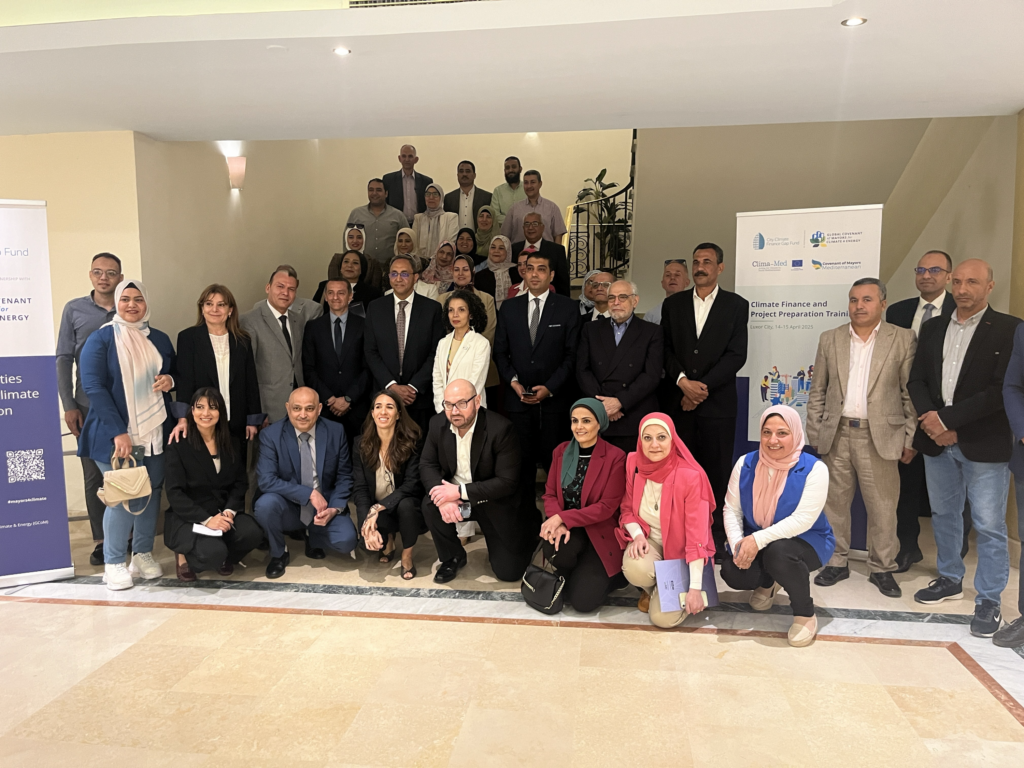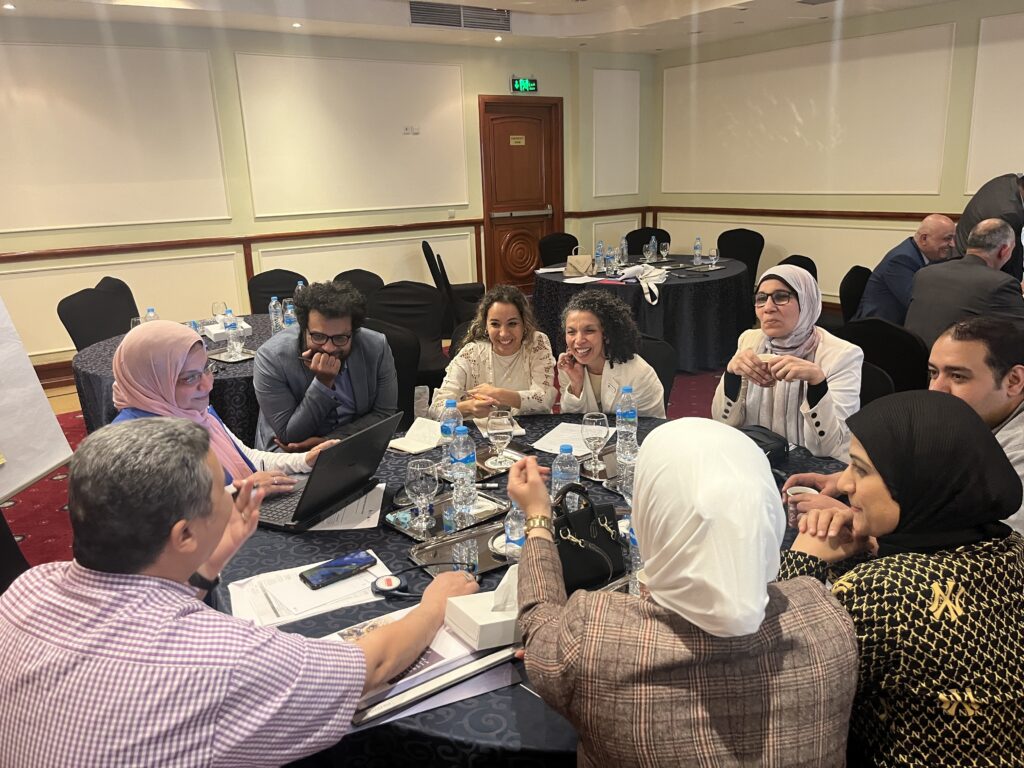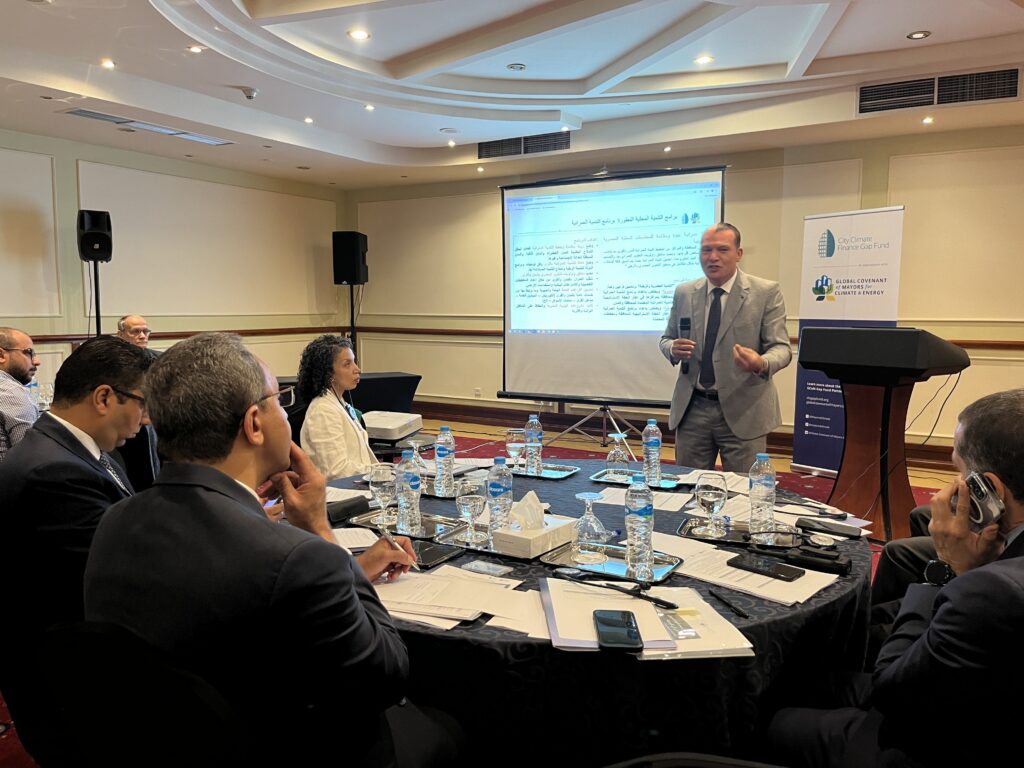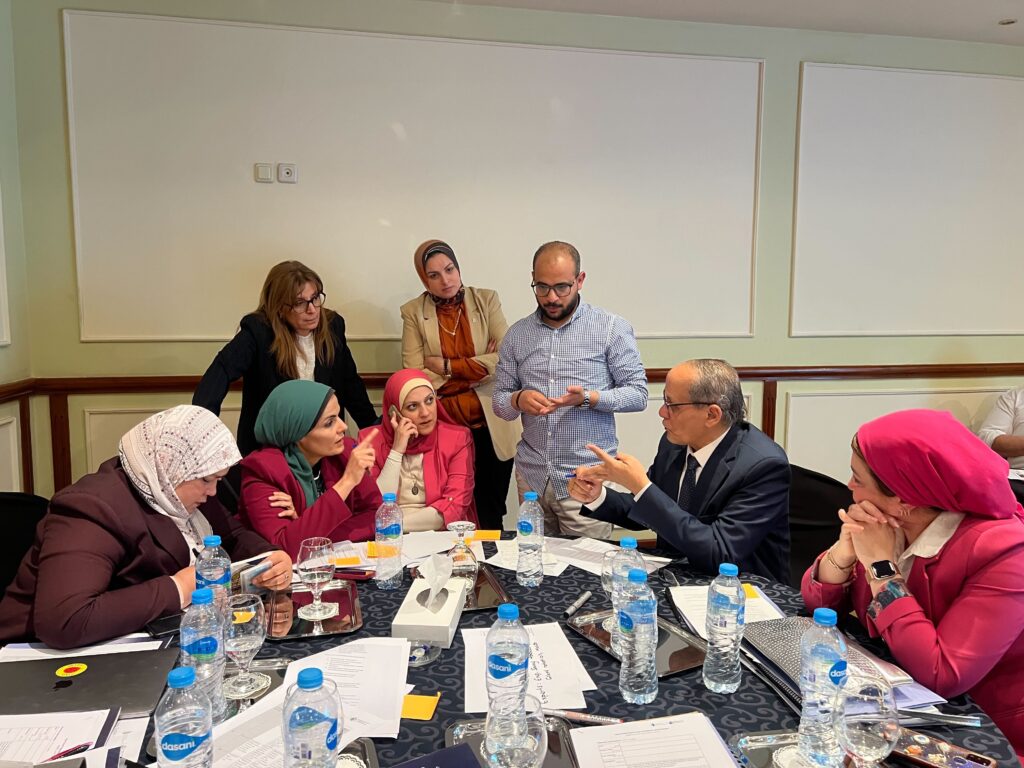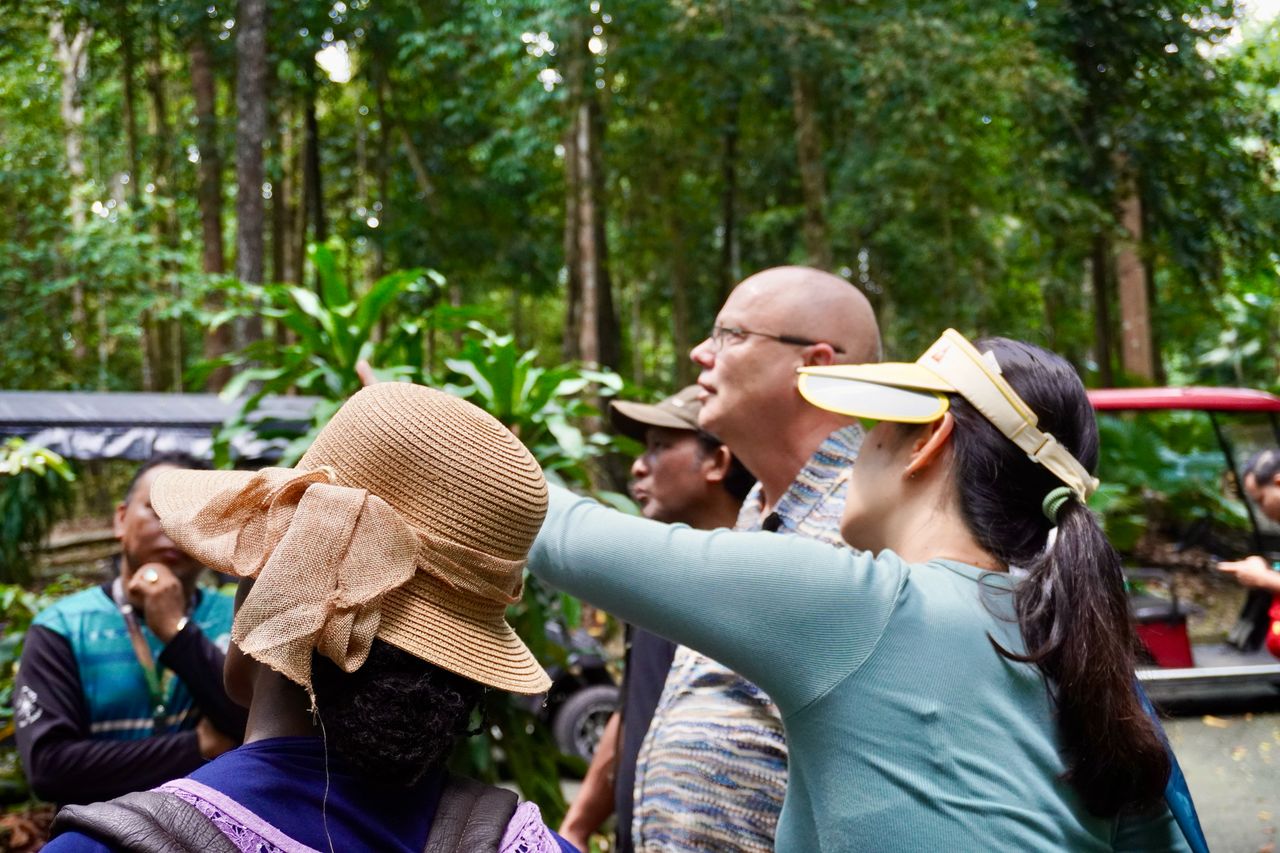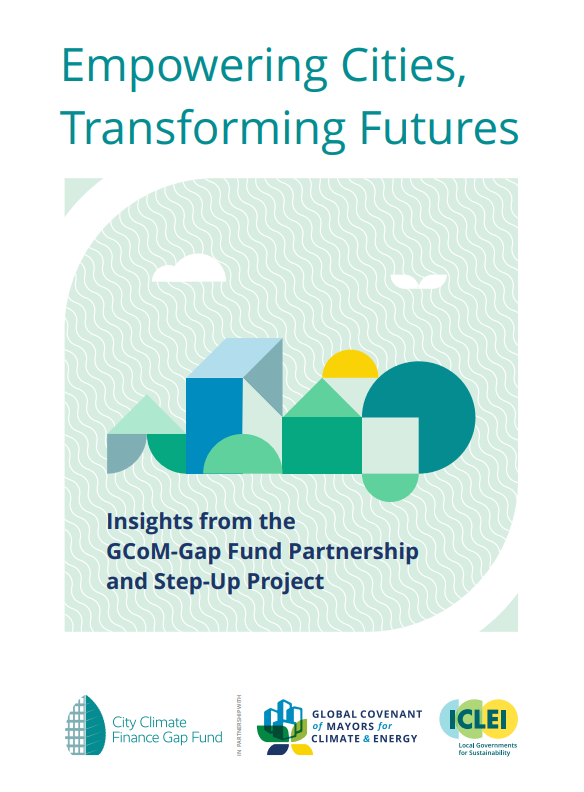On April 13-15, 2025, ten governorates and local authorities from across Egypt gathered in Luxor, Egypt, for an intensive training session on climate finance and the early-stage project preparation of climate projects. Organized by the Global Covenant of Mayors (GCoM)–Gap Fund Partnership in collaboration with the Clima-Med/Covenant of Mayors for the Mediterranean (CoM Med) projects, and with the support from the Egyptian Ministry of Local Development and the Ministry of Foreign Affairs, this event aimed to provide practical tools and expert support to help governorates shape their climate project ideas into compelling, finance-ready Expressions of Interest (EOIs) for the City Climate Finance Gap Fund (Gap Fund) as well as to promote climate action planning.
Over two days, the training brought together the Governor of Qena, the Assistant Governors of Luxor and Aswan, prominent representatives from ministries, technical and financial experts from eight Governorates, including Luxor, Aswan, Qena, Minya, Damietta, Alexandria, Beheira, Red Sea, the 6th of October City Authority, the New Urban Communities Authority (NUCA), and international partners. The goal was to support project development in key sectors, including solid waste management, urban mobility, and climate adaptation and resilience.
The program combined technical presentations, case studies, and hands-on working sessions, allowing governorate representatives to structure their project ideas into pitches for potential donors, enabling participants to refine their project concepts and receive real-time expert feedback.
The event also featured the participation of high-level representatives from the Ministry of Local Development, highlighting the national government’s commitment to supporting local and regional governments in achieving their climate goals. Dr. Hesham El-Helbawy, Assistant to the Minister of Local Development for National Projects and Local Authorities Reform, stated, “The Ministry of Local Development is committed to empowering governorates with the tools and support they need to address the impacts of climate change. Following this workshop with several governorates, we will actively facilitate their access to technical assistance from the Gap Fund and Clima-Med to help them develop strong, climate-resilient urban projects. This is a crucial step toward inclusive, sustainable local development”.
The training also included knowledge-sharing sessions from the Capital City of Greater Amman (Jordan), presentations on the Sustainable Energy Access and Climate Action Plan (SEACAP) and Climate Finance Guidebooks and Communication presentations, an overview of Egypt’s climate finance landscape, and guidance on accessing Project Preparation Facilities (PPFs) such as the Gap Fund.
Participants highlighted the transformative impact of peer exchange and hands-on learning. “We gained valuable insights from the experts and discovered what the Gap Fund really means for climate project financing,” said Amani Salah, Director General of Environmental Affairs in Qena Governorate. “It was a rich and engaging experience; we exchanged ideas, explored challenges, and learned from the projects of other governorates.” Rasha Abouzeid from the 6th of October Authority echoed this sentiment: “The workshop was extremely useful. It’s essential to learn how to clearly formulate our projects—we need more initiatives like this in the future.” These reflections underscore the importance of continuous knowledge sharing and capacity building to drive impactful climate action at the local level.
Furthermore, local authorities expressed their intent to collaborate with Clima-Med on capacity-building initiatives for SEACAP development and ultimately joining CoM Med.
During the two days, 12 project ideas were presented and discussed. With support from Clima-Med partners, the GCoM–Gap Fund team will work closely with each governorate to further develop their Expressions of Interest and prepare them for submission to the Gap Fund and other donors. The proposed projects address key priorities for Egyptian cities, particularly in solid waste management, sustainable mobility, and climate adaptation and resilience, laying the groundwork for future investment and climate-smart urban development.
